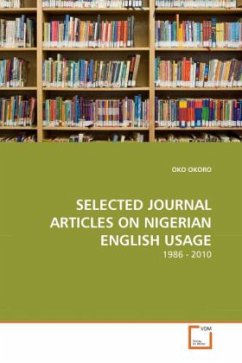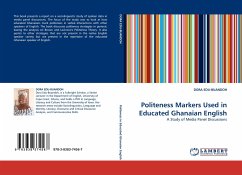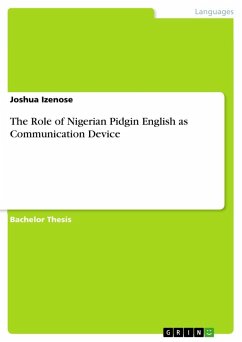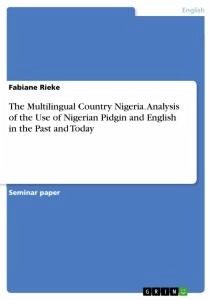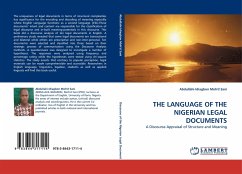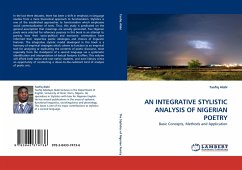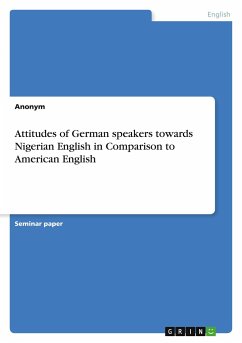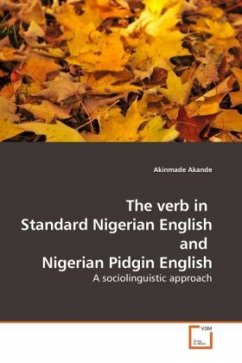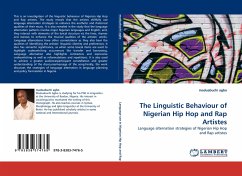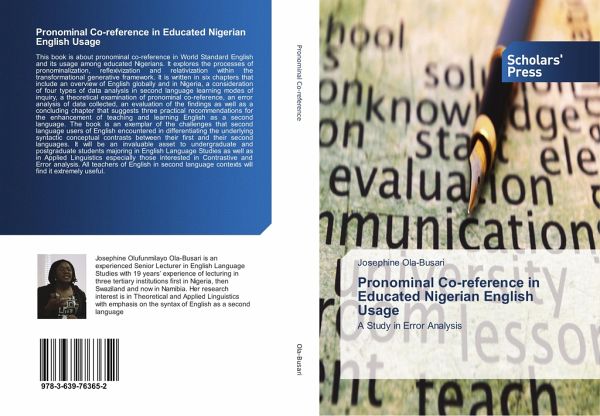
Pronominal Co-reference in Educated Nigerian English Usage
A Study in Error Analysis
Versandkostenfrei!
Versandfertig in 6-10 Tagen
43,99 €
inkl. MwSt.

PAYBACK Punkte
22 °P sammeln!
This book is about pronominal co-reference in World Standard English and its usage among educated Nigerians. It explores the processes of pronominalization, reflexivization and relativization within the transformational generative framework. It is written in six chapters that include an overview of English globally and in Nigeria, a consideration of four types of data analysis in second language learning modes of inquiry, a theoretical examination of pronominal co-reference, an error analysis of data collected, an evaluation of the findings as well as a concluding chapter that suggests three p...
This book is about pronominal co-reference in World Standard English and its usage among educated Nigerians. It explores the processes of pronominalization, reflexivization and relativization within the transformational generative framework. It is written in six chapters that include an overview of English globally and in Nigeria, a consideration of four types of data analysis in second language learning modes of inquiry, a theoretical examination of pronominal co-reference, an error analysis of data collected, an evaluation of the findings as well as a concluding chapter that suggests three practical recommendations for the enhancement of teaching and learning English as a second language. The book is an exemplar of the challenges that second language users of English encountered in differentiating the underlying syntactic conceptual contrasts between their first and their second languages. It will be an invaluable asset to undergraduate and postgraduate students majoring in English Language Studies as well as in Applied Linguistics especially those interested in Contrastive and Error analysis. All teachers of English in second language contexts will find it extremely useful.



